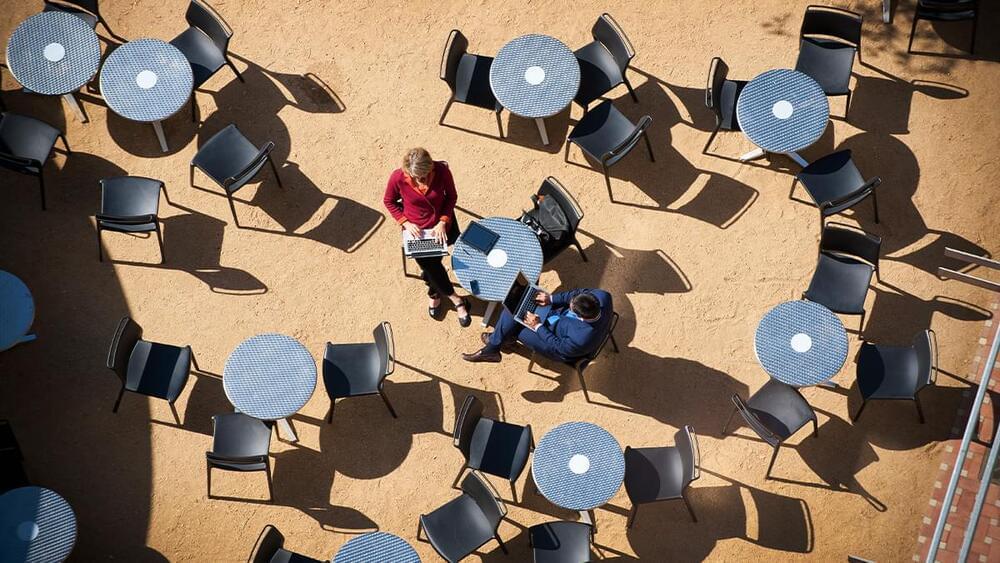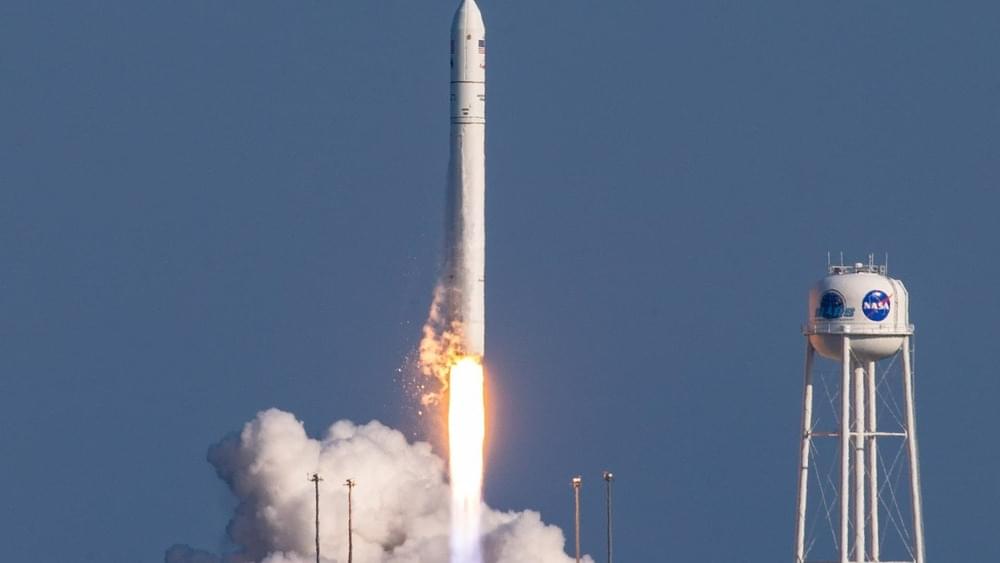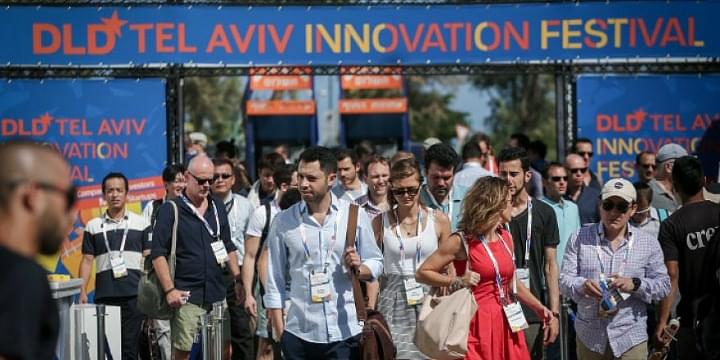Not yet. But we should make sure we act now to stay well ahead.



Nuclear power will be capable of generating 38.4 percent of Poland’s electric power needs by 2043, and should raise the country’s GDP by over 1 percent, a report by the Polish Institute of Economics (PIE) has forecast.
The report, titled “Economic aspects of nuclear investment in Poland — influence on business, the labor market and local communities,” also says that the nuclear energy program will generate 40,000 jobs over the next five decades.
According to the most optimistic scenario, 70 percent of the value of the investments in nuclear energy should be realized by Polish companies, and the total investment realized by them could reach close to $40 billion.

If the combination of Covid-19 and remote work technologies like Zoom have undercut the role of cities in economic life, what might an even more robust technology like the metaverse do? Will it finally be the big upheaval that obliterates the role of cities and density? To paraphrase Airbnb CEO Brian Chesky: The place to be was Silicon Valley. It feels like now the place to be is the internet.
The simple answer is no, and for a basic reason. Wave after wave of technological innovation — the telegraph, the streetcar, the telephone, the car, the airplane, the internet, and more — have brought predictions of the demise of physical location and the death of cities.
Remote work has become commonplace since the beginning of the Covid-19 pandemic. But the focus on daily remote work arrangements may miss a larger opportunity that the pandemic has unearthed: the possibility of a substantially increased labor pool for digital economy work. To measure interest in digital economy jobs, defined as jobs within the business, finance, art, science, information technology, and architecture and engineering sectors, the authors conducted extensive analyses of job searches on the Bing search engine, which accounts for more than a quarter of all desktop searches in the U.S. They found that, not only did searches for digital economy jobs increase since the beginning of the pandemic, but those searches also became less geographically concentrated. The single biggest societal consequence of the dual trends of corporate acceptance of remote work and people’s increased interest in digital economy jobs is the potential geographic spread of opportunity.
Page-utils class= article-utils—vertical hide-for-print data-js-target= page-utils data-id= tag: blogs.harvardbusiness.org, 2007/03/31:999.334003 data-title= Who Gets to Work in the Digital Economy? data-url=/2022/08/who-gets-to-work-in-the-digital-economy data-topic= Business and society data-authors= Scott Counts; Siddharth Suri; Alaysia Brown; Brian Xu; Sharat Raghavan data-content-type= Digital Article data-content-image=/resources/images/article_assets/2022/08/Aug22_04_509299271-383x215.jpg data-summary=
The labor market for jobs you can do on a laptop is expanding beyond major cities.

Quantum Information Science / Quantum Computing (QIS / QC) continues to make substantial progress into 2023 with commercial applications coming where difficult practical problems can be solved significantly faster using QC (quantum advantage) and QC solving seemingly impossible problems and test cases (not practical problems) that for classical computers such as supercomputers would take thousands of years or beyond classical computing capabilities (quantum supremacy). Often the two terms are interchanged. Claims of quantum advantage or quantum supremacy, at times, are able to be challenged through new algorithms on classical computers.
The potential is for hybrid systems with quantum computers and classical computers such as supercomputers (and perhaps analog computing in the future) could operate in the thousands and potentially millions of times faster in lending more understanding into intractable challenges and problems. Imagine the possibilities and the implications for the benefit of Earth’s ecosystems and humankind significantly impacting in dozens of areas of computational science such as big data analytics, weather forecasting, aerospace and novel transportation engineering, novel new energy paradigms such as renewable energy, healthcare and drug discovery, omics (genomics, transcriptomics, proteomics, metabolomic), economics, AI, large-scale simulations, financial services, new materials, optimization challenges, … endless.
The stakes are so high in competitive and strategic advantage that top corporations and governments are investing in and working with QIS / QC. (See my Forbes article: Government Deep Tech 2022 Top Funding Focus Explainable AI, Photonics, Quantum—they (BDC Deep Tech Fund) invested in QC company Xanadu). For the US, in 2018, there is the USD $1.2 billion National Quantum Initiative Act and related U.S. Department of Energy providing USD $625 million over five years for five quantum information research hubs led by national laboratories: Argonne, Brookhaven, Fermi, Lawrence Berkeley and Oak Ridge. In August 2022, the US CHIPS and Science Act providing hundreds of millions in funding as well. Coverage includes: accelerating the discovery of quantum applications; growing a diverse and domestic quantum workforce; development of critical infrastructure and standardization of cutting-edge R&D.

Weighing cost vs. benefit
For small business owners, implementing sustainability initiatives may seem more like a pipe dream than a tangible goal, as the technology can be costly to implement. What’s more, businesses that are using technology to drive sustainability must employ talented workers who can tap into those resources and streamline operations for the greatest economic and environmental benefit.
However, as companies can leverage automation and data analytics to increase efficiency, adjust energy usage, reduce waste and otherwise help with sustainability, the cost of investing in automation is worth it. By giving company leaders the ability to see the big picture in terms of carbon footprint, data and automation can help optimize operations and improve a company’s bottom line.
Copper prices have surged in 2021. The base metal remains in high demand, much thanks to its need in green energy projects and electric cars. In May 2021, commodities analysts at Goldman Sachs called copper ‘the new oil.’ That’s because electric cars need several times more copper than their gas-powered counterparts. And power grids getting electricity from wind, solar and hydro sources also need copper—much more than the industry is currently producing. Here’s how copper became so important to the world economy and the green energy revolution.
» Subscribe to CNBC: https://cnb.cx/SubscribeCNBC
» Subscribe to CNBC TV: https://cnb.cx/SubscribeCNBCtelevision.
About CNBC: From ‘Wall Street’ to ‘Main Street’ to award winning original documentaries and Reality TV series, CNBC has you covered. Experience special sneak peeks of your favorite shows, exclusive video and more.
Connect with CNBC News Online.
Get the latest news: https://www.cnbc.com/
Follow CNBC on LinkedIn: https://cnb.cx/LinkedInCNBC
Follow CNBC News on Facebook: https://cnb.cx/LikeCNBC
Follow CNBC News on Twitter: https://cnb.cx/FollowCNBC
Follow CNBC News on Instagram: https://cnb.cx/InstagramCNBC
Why a looming copper shortage has big consequences for the green economy.

As investors continue to put money into technology companies making a difference, there is a misconception that a majority of investors belong to younger generations. New research shows the distribution in ESG-motivated investment: 54% are Gen Z and millennials, 42% are baby boomers, and 25% are Gen Xers.
ESG Standards That Younger Generations Care About
From combatting climate change to expanding diversity in the boardroom and instituting more corporate equitable policies, technology companies need to understand what Gen Z and Gen X care about. If any sector of the global economy is sensitive to ESG it should be technology with its appeal to younger audiences. That’s why the recent acceleration of widespread reporting on ESG principles and practices is creating a shift in power, money and jobs from baby boomers to millennials and Gen Z, in which passive investing, COVID, social injustice issues, the Great Resignation and talent shortages are all contributing factors.

I find the following interesting because Firefly Aerospace is just a few miles from my house plus it is an example of one more company pulling out of Russia for good. Russia’s economy will be much weaker by the time this war is over and their space industry will be decimated.
Northrop Grumman is moving production of the engines and structures for its Antares rockets to the U.S. from Russia and Ukraine, a move that will have cascading effects throughout the space industry.
The aerospace giant said Monday it will move Antares production fully to the U.S. through a partnership with Texas-based Firefly Aerospace. Northrop Grumman had purchased Russian RD-181 engines to power the Antares 230+ series, and the rocket’s main body was manufactured by Ukraine’s Yuzhmash State Enterprise.
The new arrangement mainly resolves the break in Antares manufacturing caused by Russia’s invasion of Ukraine in February. But in addition to salvaging the Antares rocket series, the cost-sharing deal also helps ensure NASA’s cargo missions to the International Space Station keep flying regularly and brings muscle to Firefly’s plan to build a larger rocket called Beta.

JAKARTA, Aug 8 (Reuters) — U.S. carmaker Tesla (TSLA.O) has signed contracts worth about $5 billion to buy materials for their batteries from nickel processing companies in Indonesia, a senior cabinet minister told CNBC Indonesia.
Southeast Asia’s biggest economy has been trying to get Tesla to set up a production facility in the country, which has major nickel reserves. President Joko Widodo met with Tesla founder Elon Musk earlier this year to drum up investment. read more
“We are still in constant negotiation with Tesla … but they have started buying two excellent products from Indonesia,” Coordinating Minister for Maritime and Investment Affairs Luhut Pandjaitan said in an interview broadcast on Monday.

Participants at the DLD Tel Aviv Digital Conference, Israel’s largest international high-tech gathering, held at the Old Train Station complex in Tel Aviv on Sept. 6, 2017. Photo: Miriam Alster/Flash90.
Israel announced the launch of a $6.2 million program to boost the number of Arab-Israelis employed in the high-tech sector as the country suffers from a shortage of skilled workers.
The grants will be awarded to companies, corporations and NGOs to cover a maximum of 70 percent of their costs for developing programs and models to help further integrate Arab-Israelis into the high-tech industry, the Israel Innovation Authority and the Economy Ministry’s Directorate General of Labor said in a joint statement on Thursday.